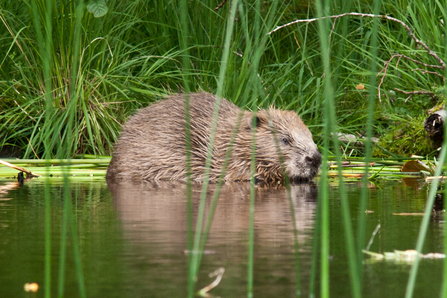Today, The Wildlife Trusts publish A vision for the return of beavers to England and Wales making the case for bringing back this keystone species to rivers in the two countries. Beavers are known for their hugely beneficial effects on wetlands and can play an important role in flood prevention, filtering water and boosting wildlife habitat.
Three years since Defra’s beaver consultation opened and nearly two years since legislation officially recognised beavers as a native species in England, the UK Government has repeatedly failed to put in place the steps needed for their return. This includes the issuing of licences for beavers to be returned to the wild in England and the publishing of strategic plans to enable beavers to be reintroduced. Wales still lacks legislation to protect beavers and enable their effective management. Despite previous political indications that wild releases would be allowed, it has yet to happen.
The Wildlife Trusts’ new vision explains how releasing beavers into the wild – in preference to the fenced enclosures that are currently allowed – will enable beavers to rejoin our native ecology, providing beleaguered wetlands with a powerful natural restoration tool, bringing back life to our rivers and providing a host of benefits to society.
Rob Stoneman, director of landscape recovery at The Wildlife Trusts, says:
“The benefits of beavers are widely acknowledged and well-evidenced – but across England and Wales, the reintroduction of this keystone species has stalled. Numerous scientific studies have shown that beavers improve water quality, stabilise water flows during times of drought and flood, and give a huge boost to habitats and to other wildlife. Given the climate and nature crises, we need beavers back in the wild to give us a hand to resolve these challenges.
“Nature needs beavers – but at the moment these extraordinary mammals are either living in enclosures where the benefits to communities are limited, or they’ve been released illegally and there are no management plans in place to support land managers. The nations’ Governments must accept that beavers are here to stay and embrace the big positives they bring so that society can reap the rewards too.”

